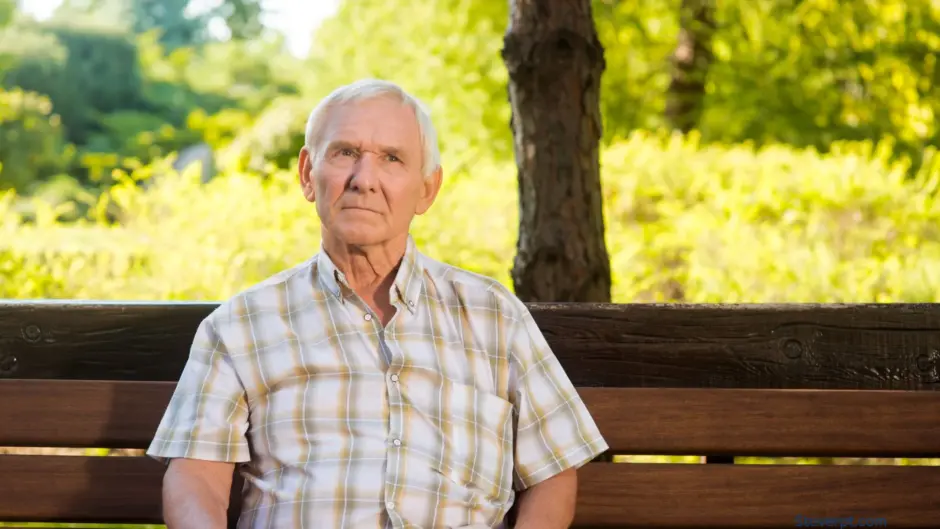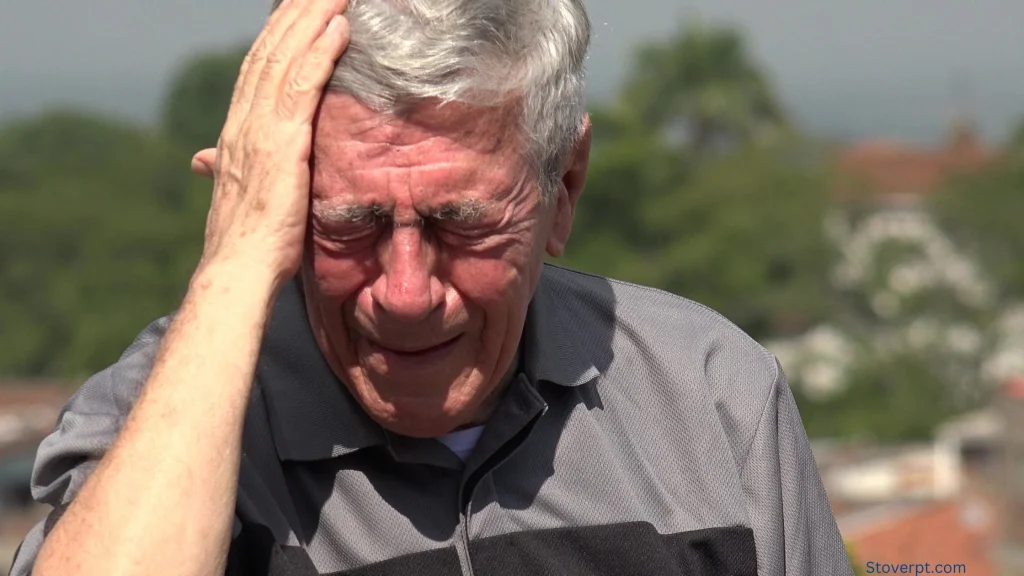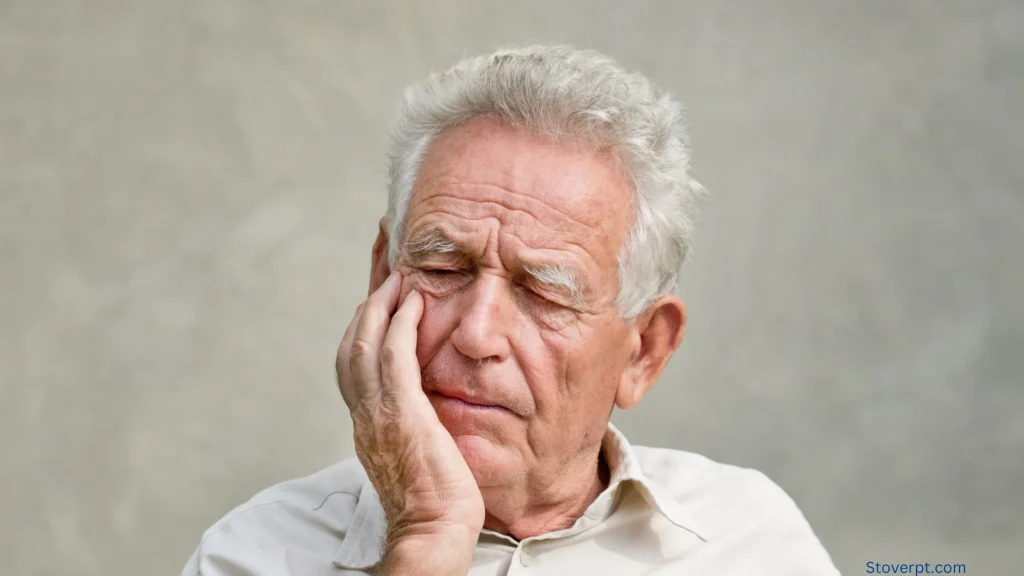Why Do Old People Chew For Fo Reason?

As a physical therapist specializing in senior care, I often encounter elderly individuals who appear to be chewing without any food in their mouths. This behavior, known as empty mouth movements or senile sialorrhea, occurs for several reasons.
The most common causes include dry mouth (xerostomia), neurological conditions like Parkinson’s disease or dementia, dental issues, side effects of medications, and sometimes as a habit or comfort behavior.
While it might seem puzzling, this action is relatively common among older adults and often indicates an underlying health issue that needs attention.
Understanding Empty Mouth Movements in the Elderly
Let’s understand what we mean by “chewing for no reason”:
- Repetitive jaw movements
- Lip smacking or pursing
- Tongue movements inside the mouth
- Swallowing motions without food present
These actions might occur when the person is at rest, engaged in other activities, or even during sleep.
Common Causes of Empty Mouth Movements in Older Adults
There are several reasons why elderly individuals might exhibit this chewing behavior. Let’s explore some of the most common causes:
1. Dry Mouth (Xerostomia)
One of the primary reasons for empty mouth movements in older adults is dry mouth, also known as xerostomia. This condition occurs when there’s not enough saliva production in the mouth.
Why does dry mouth happen?
- Medication side effects
- Dehydration
- Certain medical conditions (e.g., Sjögren’s syndrome)
- Radiation therapy for head and neck cancers
How does dry mouth lead to chewing movements?
When the mouth is dry, it can feel uncomfortable. The chewing motion stimulates saliva production, which helps to moisten the mouth and alleviate discomfort.
2. Neurological Conditions
Various neurological disorders can cause involuntary mouth movements in older adults. Some of these conditions include:
- Parkinson’s disease
- Huntington’s disease
- Tardive dyskinesia
- Alzheimer’s disease and other forms of dementia
These conditions can affect the brain’s control over muscle movements, leading to repetitive, involuntary actions like chewing or lip smacking.

3. Dental Issues
Dental problems are another common cause of empty mouth movements in the elderly. These issues can include:
- Ill-fitting dentures
- Tooth decay or gum disease
- Temporomandibular joint (TMJ) disorders
When seniors experience discomfort in their mouth due to dental issues, they might unconsciously move their jaws or tongues to alleviate the discomfort or adjust their dentures.
Addressing these dental concerns through regular checkups, proper denture fittings, and timely treatment can greatly reduce these involuntary movements. According to this professional kids dentist in Las Vegas NV, ensuring good oral health not only improves comfort but also enhances overall quality of life for elderly individuals.
4. Gastroesophageal Reflux Disease (GERD)
GERD is a digestive disorder that occurs when stomach acid frequently flows back into the esophagus. This condition can cause:
- Heartburn
- Chest pain
- Difficulty swallowing
To combat these symptoms, some older adults might unconsciously perform chewing motions to stimulate saliva production, which helps neutralize stomach acid.
5. Medication Side Effects
Many medications commonly prescribed to older adults can cause side effects that lead to empty mouth movements. These side effects may include:
- Dry mouth
- Muscle tremors or twitches
- Changes in saliva production
Some types of medications that might cause these side effects include:
- Antipsychotics
- Antidepressants
- Parkinson’s disease medications
- Blood pressure medications
6. Habit or Comfort Behavior
In some cases, empty mouth movements might simply be a habit or a comfort behavior. Just as some people bite their nails or tap their feet, some older adults might engage in mouth movements as a self-soothing mechanism or out of habit.
The Impact of Empty Mouth Movements on Senior Health
While chewing for no apparent reason might seem harmless, it can have several implications for an older adult’s health and well-being:
- Dental wear and tear: Constant jaw movements can lead to excessive wear on teeth or dentures.
- Social discomfort: The behavior might cause embarrassment or social awkwardness for the individual.
- Jaw pain: Prolonged empty mouth movements can result in temporomandibular joint (TMJ) pain or disorders.
- Difficulty eating: If the behavior is due to dental issues or dry mouth, it might interfere with normal eating and swallowing.
- Indicator of underlying health issues: As mentioned earlier, this behavior could be a sign of various health conditions that require attention.
Diagnosing the Cause of Empty Mouth Movements

If you notice an older adult frequently engaging in empty mouth movements, it’s essential to consult a healthcare professional for a proper diagnosis. The diagnostic process might include:
- Medical history review: The doctor will ask about current medications, existing health conditions, and when the behavior started.
- Physical examination: This may include a thorough examination of the mouth, teeth, and jaw.
- Neurological assessment: To check for signs of neurological disorders.
- Dental evaluation: A dentist might be consulted to rule out dental issues.
- Blood tests: To check for underlying health conditions or nutritional deficiencies.
- Imaging studies: In some cases, brain scans might be necessary to rule out neurological causes.
Treatment Options for Empty Mouth Movements
The treatment for this behavior depends on its underlying cause. Here are some potential approaches:
1. Addressing Dry Mouth
If dry mouth is the culprit, treatment options may include:
- Increasing water intake
- Using saliva substitutes or oral moisturizers
- Chewing sugar-free gum to stimulate saliva production
- Adjusting medications that cause dry mouth (under doctor’s supervision)
2. Managing Neurological Conditions
For neurological causes, treatment might involve:
- Medications to manage symptoms of Parkinson’s disease or other neurological disorders
- Physical therapy or occupational therapy to improve muscle control
- Speech therapy to address swallowing difficulties
3. Resolving Dental Issues
Dental treatments may include:
- Adjusting ill-fitting dentures
- Treating tooth decay or gum disease
- Managing TMJ disorders through exercises or dental appliances
4. Treating GERD
For individuals with GERD, treatment options might include:
- Dietary changes to avoid trigger foods
- Medications to reduce stomach acid production
- Lifestyle modifications, such as avoiding eating close to bedtime
5. Medication Adjustments
If the behavior is a side effect of medication, the doctor might:
- Adjust the dosage
- Switch to a different medication
- Prescribe additional medications to manage side effects
6. Behavioral Interventions
For habit-related chewing, interventions might include:
- Cognitive-behavioral therapy
- Mindfulness techniques
- Providing alternative oral stimulation (e.g., chewing gum)
Caring for Seniors with Empty Mouth Movements
As a caregiver or family member, there are several ways you can support an older adult who exhibits this behavior:
- Be patient and understanding: Remember that the person may not be aware of their actions or may be unable to control them.
- Ensure good oral hygiene: Help maintain proper dental care to prevent complications from excessive chewing.
- Offer hydration: Encourage regular water intake to combat dry mouth.
- Monitor medication: Keep track of medications and their potential side effects.
- Create a comfortable environment: Reduce stress and provide calming activities that might help minimize the behavior.
- Seek professional help: Don’t hesitate to consult healthcare providers for proper diagnosis and treatment.
Preventing Empty Mouth Movements in the Elderly
While not all cases of empty mouth movements can be prevented, there are steps that can be taken to reduce their occurrence or severity:
- Regular health check-ups: Ensure seniors have routine medical and dental examinations to catch potential issues early.
- Medication review: Regularly review medications with a healthcare provider to minimize side effects.
- Maintain good oral health: Encourage proper dental hygiene and regular dental visits.
- Stay hydrated: Promote adequate fluid intake throughout the day.
- Healthy lifestyle: Encourage a balanced diet, regular exercise, and stress-reduction techniques.
- Cognitive stimulation: Engage in activities that keep the mind active and reduce idle time.
When to Seek Medical Help
While occasional mouth movements might not be cause for concern, it’s important to consult a healthcare professional if:
- The behavior is new or sudden
- It interferes with eating, speaking, or daily activities
- It’s accompanied by other symptoms like confusion, tremors, or difficulty swallowing
- The person experiences pain or discomfort in the jaw or mouth
- There are signs of dental problems or infections
FAQs About Empty Mouth Movements in the Elderly
To help address some common questions about this topic, I’ve compiled a list of frequently asked questions:
Is chewing for no reason a normal part of aging?
While it’s not uncommon in older adults, it’s not a normal part of aging and often indicates an underlying issue that should be addressed.
Can empty mouth movements be a sign of dementia?
Yes, they can be associated with certain types of dementia, but there are many other potential causes as well.
Are these movements harmful?
They can potentially lead to dental wear, jaw pain, or social discomfort, but are generally not harmful in themselves.
How can I help my loved one who exhibits this behavior?
Encourage them to see a healthcare provider for proper diagnosis, ensure good oral hygiene, and be patient and understanding.
Can medication cause this behavior?
Yes, certain medications can cause dry mouth or other side effects that may lead to empty mouth movements.
Is there a cure for this behavior?
Treatment depends on the underlying cause. In many cases, the behavior can be managed effectively once the cause is identified.
Should I try to stop my loved one from making these movements?
It’s generally not recommended to forcibly stop the behavior. Instead, focus on identifying and addressing the underlying cause.
By understanding the causes and implications of empty mouth movements in older adults, we can provide better care and support for our senior population. Remember, compassion and professional medical advice are key in managing this and other age-related behaviors.
Does Medicare Pay for Assisted Living for Dementia?





